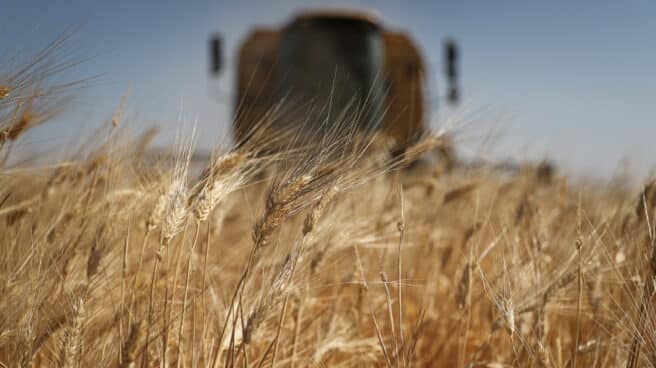

Harvest on a wheat plantation.
Glyphosate will be legal in the European Union for at least another 10 years, until December 2033. The European Commission took over the reins after member states did not support the decision with a sufficient majority; However, the Commission followed the recommendations of the European Chemicals Agency (ECHA) and the European Food Safety Authority (EFSA), which in recent years have carried out an exhaustive assessment of which herbicide is the most used globally and in Europe.
Brussels is expanding the use of glyphosate, although subject to some new conditions and restrictions, including a ban on its use as a pre-harvest desiccant and the need to take certain measures to protect organisms that are not affected by the herbicide.
Member States are therefore responsible for the national authorization of plant protection products containing glyphosate and may restrict their use at national and regional level if they consider this necessary based on the results of a risk assessment, taking into account in particular the need to protect biodiversity.
The Commission’s decision satisfies the demand of the Alliance for Sustainable Agriculture (ALAS), which includes farmers’ organizations ASAJA, COAG and UPA, Spanish agri-food cooperatives, the Spanish Federation of Associations of Producers and Exporters of Fruits, Vegetables, Flowers and Living Plants (FEPEX) and the Spanish Association for Resource Conservation agriculture, living soils, AEAC.SV.
Farmers have recently argued that the use of glyphosate is vital in the context of inflation such as the current one, as “it helps improve agricultural productivity and allows safe and environmentally friendly products to be delivered to homes without unnecessarily increasing the cost of production.” .
The ASAJA office in Brussels welcomed the decision and thanked the “Ministry of Agriculture, Fisheries and Food for its work” as Spain voted in favor of the decision. Europe’s two largest economies, France and Germany, abstained from the latest vote, “their position is very comfortable because they say, ‘I don’t vote at all and let Brussels decide,’ so they have no consequences.” at the national level,” according to the ASAJA office in Brussels.
Glyphosate is commonly applied before crop planting to control weeds and thus promote better crop growth by eliminating competing plants. According to the Commission, “this eliminates or minimizes the need for arable machinery, thereby reducing soil erosion and carbon dioxide emissions.”
The vote, which ended in approval by the European Commission because it did not reach the majority needed to approve or reject it, resulted in 17 votes in favor, 3 against and 7 abstentions.
Source: El Independiente